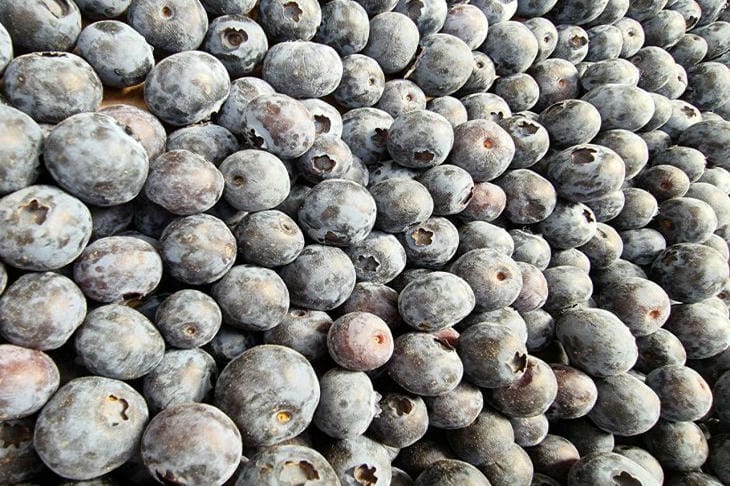What not to plant next to blueberries: secrets of harmonious neighborhood in the garden
Blueberries are a capricious beauty of the garden, requiring a special approach and attention.
Its successful cultivation depends not only on proper care, but also on the competent selection of neighbors in the garden bed.
Some plants can become real enemies of blueberries, preventing their growth and fruiting.
Plants that change soil acidity
Blueberries prefer acidic soil with a pH of 4.5 to 5.5. Plants that change the soil acidity towards an alkaline reaction are undesirable neighbors for blueberries.
Such crops include legumes: beans, peas, clover. These plants are able to fix nitrogen from the air, which leads to an increase in soil pH.

As a result, blueberries may experience a deficiency of iron and other micronutrients, which will negatively affect their growth and yield.
Competitors for Nutrients
Some plants are active consumers of the same nutrients as blueberries.
Planting them next to each other means creating unnecessary competition. Such crops include raspberries, blackberries and other berry bushes.
Not only do they compete for nutrients, but they can also shade the blueberries, which is extremely undesirable for this light-loving plant.
Plants with aggressive root systems
Blueberries have a shallow root system that is easily damaged when planted next to plants with aggressive roots.
These plants include many herbaceous perennials, such as mint, couch grass, and sow thistle. Their roots can crowd out the roots of blueberries, depriving them of access to water and nutrients.
Tall crops
Tall plants such as sunflowers, corn or tall tomato varieties are not recommended for planting near blueberries.
They create too much shading, which can lead to reduced yields and deterioration in the quality of berries.
Blueberries need sufficient sunlight for normal development and fruit formation.
Plants that are hosts of pests and diseases
Some plants may attract pests or carry diseases that are harmful to blueberries.
For example, it is not recommended to plant strawberries or tomatoes next to blueberries, which may be affected by verticillium wilt, a disease that is also dangerous for blueberries.
Allelopathic plants
There are plants that release substances into the soil that inhibit the growth of other crops. This phenomenon is called allelopathy.
Plants with pronounced allelopathic properties include walnut, oak, eucalyptus. They should not be planted near blueberries, as they can suppress their growth and development.
Plants that attract birds
While birds can be beneficial to the garden by eliminating harmful insects, they pose a serious threat to blueberries.
Plants that attract birds with their fruits or seeds are best not planted next to blueberries. Such crops include sunflower, rowan, bird cherry.
The Right Neighbors for Blueberries
Instead of unwanted neighbors, you can plant plants next to blueberries that will have a beneficial effect on its growth.
Conifers, rhododendrons, heather, and lingonberries are considered good companions. These crops prefer similar soil conditions and will not compete with blueberries for nutrients.
